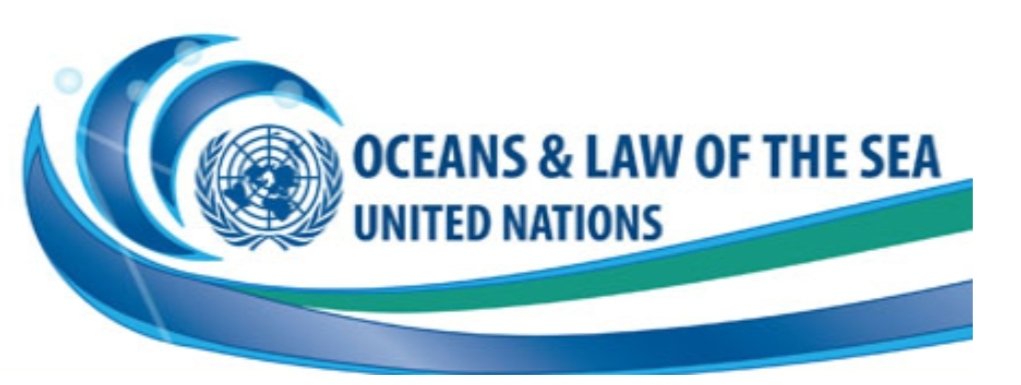Federation of Saint Kitts and Nevis Attends 35th Session of the United Nations Convention on the Law of the Sea State Parties Meeting
The Thirty-Fifth Meeting of State Parties to the United Nations Convention on the Law of the Sea (UNCLOS), a pivotal gathering for international maritime law, convened at the United Nations Headquarters in New York City from June 23rd to 26th, 2025. This meeting served as a platform for member states to discuss the ongoing implementation and challenges related to UNCLOS, the cornerstone of ocean governance. St. Kitts and Nevis, represented by its Permanent Representative to the United Nations, H.E. Dr. Mutryce Williams, and legal expert Mrs. Sonia Boddie-Thompson, actively participated in the deliberations, underscoring the nation’s commitment to the principles enshrined within the Convention. The meeting’s agenda included receiving reports from key UNCLOS bodies – the International Tribunal for the Law of the Sea, the International Seabed Authority, and the Commission on the Limits of the Continental Shelf – and addressing critical issues such as capacity-building, marine technology transfer, and the unique vulnerabilities of Small Island Developing States (SIDS).
A central theme of the meeting revolved around the reports presented by the subsidiary bodies established under UNCLOS. The International Tribunal for the Law of the Sea, responsible for adjudicating disputes arising from the Convention, likely provided an update on its recent caseload and jurisprudence. The International Seabed Authority, tasked with regulating exploration and exploitation of deep seabed mineral resources, probably reported on its progress in developing a mining code, a contentious issue with significant environmental implications. The Commission on the Limits of the Continental Shelf, which reviews state submissions for extended continental shelf claims beyond 200 nautical miles, likely presented an overview of its ongoing work and the challenges it faces in managing the increasing number of submissions. These reports provided a comprehensive picture of the current state of affairs regarding the implementation of UNCLOS and highlighted emerging challenges in ocean governance.
Adding to these reports, UN Secretary-General António Guterres presented a comprehensive report on Oceans and the Law of the Sea, a document that likely addressed the complex interplay between ocean health, climate change, and the legal framework provided by UNCLOS. The report likely explored the growing threats to the marine environment, including pollution, overfishing, and the impacts of climate change, and highlighted the importance of UNCLOS in addressing these challenges. It probably also emphasized the need for strengthened international cooperation and enhanced capacity-building efforts to ensure the sustainable management of the world’s oceans. The Secretary-General’s report set the stage for broader discussions among state parties on the future of ocean governance and the role of UNCLOS in navigating the complex challenges ahead.
In her national statement, Ambassador Williams reiterated St. Kitts and Nevis’ unwavering commitment to UNCLOS, highlighting the country’s ratification of the Convention in 1993 and its recent active engagement in international ocean-related initiatives. She emphasized the nation’s participation in the Third Ocean Conference and the signing of the BBNJ Agreement, which focuses on the conservation and sustainable use of marine biodiversity in areas beyond national jurisdiction. These actions demonstrate St. Kitts and Nevis’ proactive approach to ocean governance and its dedication to upholding the principles of UNCLOS. Ambassador Williams’ statement served to reinforce the country’s position as a responsible steward of the marine environment and a strong advocate for international cooperation in ocean affairs.
Recognizing the importance of capacity-building and the transfer of marine technology, Ambassador Williams expressed gratitude for the support provided by the UN Division for Ocean Affairs and the Law of the Sea and its partners. She acknowledged the value of the training programs and workshops offered, which have equipped diplomats, marine officials, and legal practitioners in St. Kitts and Nevis with the necessary knowledge and skills to ensure compliance with UNCLOS. However, she also underscored the unique vulnerabilities and challenges faced by SIDS in implementing the Convention, advocating for tailored capacity-building programs and technology transfer initiatives that cater to their specific needs. This call for differentiated treatment acknowledges the limited resources and capacity of SIDS to effectively manage their vast ocean spaces and implement the complex provisions of UNCLOS.
Ambassador Williams’ advocacy reflects the broader concerns of SIDS regarding the equitable implementation of UNCLOS. SIDS are often disproportionately affected by ocean-related challenges, including rising sea levels, ocean acidification, and the impacts of illegal, unreported, and unregulated fishing. They often lack the resources and technical capacity to effectively monitor and manage their maritime zones, enforce regulations, and benefit from the sustainable use of marine resources. Therefore, targeted capacity-building programs and access to marine technology are crucial for empowering SIDS to effectively implement UNCLOS and safeguard their maritime interests. The call for a nuanced approach to capacity-building recognizes that a “one-size-fits-all” approach is inadequate and that specific considerations must be made for the unique circumstances of SIDS, particularly those in the Caribbean. This advocacy aims to ensure that SIDS can fully participate in and benefit from the international legal framework governing the oceans.
Share this content:












Post Comment